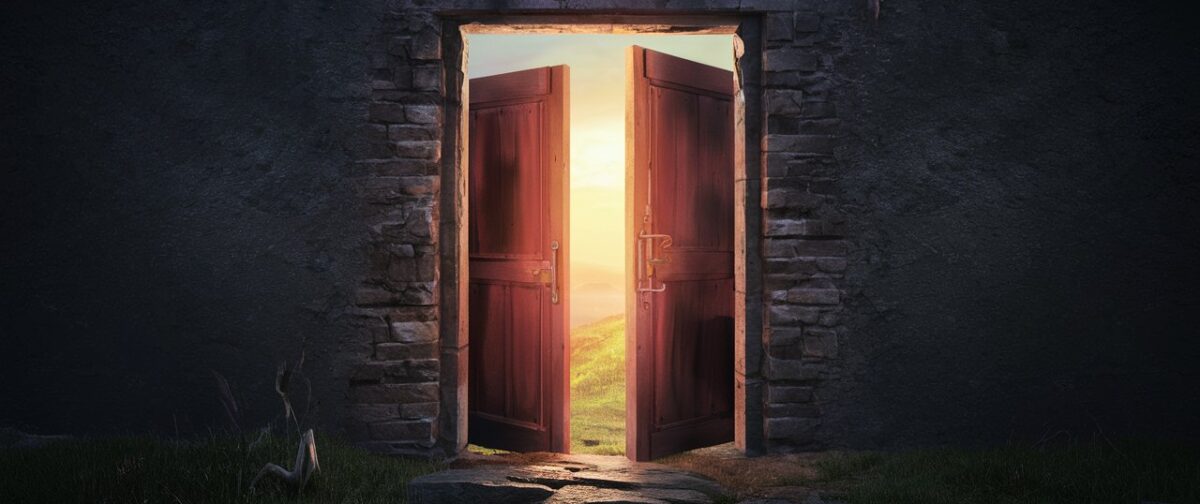This is the next post in my miniseries about ethics in “The Good Place” (see Part One, Part Three, and all my other reflections on the Good Place here). All of this is part of a wider series I am writing about that TV show. In this post, I will talk about how the series portrays the ethical theory called deontology.
Deontology evaluates the morality of one’s actions based on a set of principles or rules. Different deontologists may have different principles (ranging from divine commands to general values or principles of what makes the best society), but deontologists view strict adherence to it as key in evaluating whether something is ethical.
Most of the series depictions of deontology center around Immaneul Kant, one of the best known modern European deontologists. Chidi, the main philosophy character in the show, was a Kantian scholar and considered himself a follower of Kant. In short, his system of ethics emphasized the importance of not using other people but treating their autonomy and freedom as paramount. Thus, for him, our actions ought to be those for which, if everyone did that action in that situation, would not hurt or constrain others in the world.
Chidi’s presence in the show is a constant reference to deontology. This is especially reflected in Chidi’s strict adherence to his principles about what the right thing to do is. Yet the show seems to use him to critique deontology. It puts him in situations where he must break his own rules as a source of plot conflict: forcing Chidi to agonize over whether to follow his principles or do the “dirty deed” necessary in the moment. For example, he must decide whether to lie for a noble cause, whether that is to not disclose that Eleonor (and later Jason) do not belong in the Good Place or pretending to be a fellow demon when a secret agent in hell itself. Kant famously argued that lying is always wrong, and even in a situation where it seems better to lie, it actually is not. It’s better for humanity overall to always tell the truth even in a situation that harms you or those around you.
Each time, he is put in a situation where he must decide whether to lie for a good reason. He struggles, but ultimately does lie. This seems to ultimately critique deontology, as if the show is arguing that sometimes the rules must be broken. Especially when the others around you are not willing to be nice or cooperate (like demons) or when the stakes are the eternal damnation of all humanity. Sometimes, though, he lies to uphold a contradictory value (such as to keep a prior promise made not to help before knowing that helping involves lying), but in a number of circumstances, it is clear that in some circumstances, he and the show thinks it is necessary to forsake one’s principles when push comes to shove.
Chidi’s insistence on adhering to strict moral principles is part of what causes him to struggle to make decisions, his biggest flaw in the show. At the same time, though, his principles were his most virtuous trait. It influences the other characters, catalyzing their own development: in almost every time the characters’ minds are wiped, Chidi ends up teaching them philosophy, which betters them as people (especially Eleanor). His strict adherence to more principles makes him reliable.
One penultimate example of this during a major climax in the series is Chidi helping the entitled and narcissistic former CEO, Brent Norwalk. The character seems almost utterly unredemptive, but in the heat of the moment, when helping could mean eternal damnation, Chidi was the only character willing to help him. He did so not because he thought that Brent deserved it (Brent had done no redemptive action) but because of his internal principle that it is morally right to help others in need. Through this and other moments, the show illustrates how standing by your principles can be an incredibly morally virtuous act.
Another way the show reflects on deontology is in how the show emphasizes the people’s motivations and inherent goodness or badness in its points system. The points system uses people’s intentions to determine how good or bad an action is. Utilitarianism or other forms of consequentialism often do not see internal motivations as important: instead what happened is only what matters, no matter their intention. In the show, though, being nice for a selfish reason seems to lower the point value of the nice act (and in some cases, make it wholly negative). Although keep in mind, this could really better reflect virtue ethics, which I will discuss in my next article in this miniseries. This aspect of the point system could be a thread deontology.
All of this illustrates the show’s complex relationship with deontology. Overall, the show does not endorse deontology, preferring more nuanced, maybe pragmatic, circumstantial ethical deliberations cultivated overtime than developing universal ethical principles for all time. Chidi has to overcome his principles constantly throughout the show, arguing that at the very least strictly following one’s ethical principles is too much. Life (or the afterlife) is too complex for rigid moral rules.
At the same time, it illustrates how honorable it can be to have principles and stick to them. Importantly, in all of these quandary moments, Chidi decides to do what is best for others around him, especially those in a vulnerable position. Thus, it presents helping others as honorable, whether that means lying to protect someone or like in the situation with Brent, selflessly risking one’s own salvation to help save another. Its view of when to follow principles and when to break them is more fluid, but having ethical principles in itself is noble.









